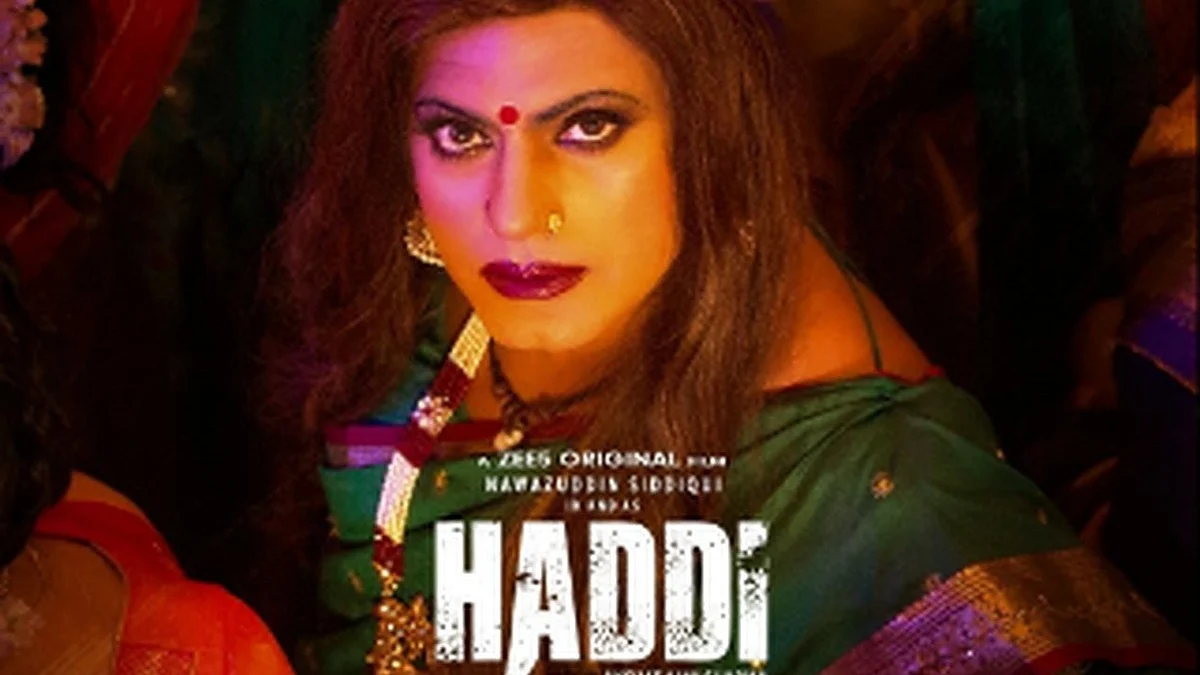Haddi: A lost opportunity on exploring transgender rage
The unnecessarily complicated plot, when stripped down to its bones, is a straightforward revenge saga where the titular character infiltrates the villain’s gang and gives him the death he deserves

Rating: **
There is no dearth of talent in Haddi, a restless raging exploration of transgender crises. Tragically, though, debutant director Akshay Ajay Sharma and his co-writer Adamya Bhalla seem obsessed with blood and bloodshed. After sitting through the lengthy and unbearably brutal film (be warned the violence is savage and sadistic) one comes away exhausted by the sanguinary mood of the vendetta story.
Haddi is an exhausting and disturbing film. The unnecessarily complicated plot when stripped down to its bones, is a straightforward revenge saga where the titular character infiltrates the villain’s gang and then in a highly manufactured climax, gives him the death he deserves. Not willing to tell a simple story, director Sharma teases a torrent of tormenting violence into the screenplay, rendering the inherent poignancy of the protagonist’s gender crisis into a voluminous orgy of mayhem.
There is an infuriating storehouse of potentially powerful and moving situations here, all gunned down and axed to the ground. The violence applied to the drama is not just combative, it is also individual. In a prolonged flashback when Haddi (Nawazuddin Siddiqui) gets a gender confirmation surgery, his tortuous transformation into her is accompanied by a whole lot of blood on the thighs, the mattress, everywhere.
There is blood everywhere, nowhere more so than in the sequence where the villain Pramod Ahlawat (Anurag Kashyap) guns down an entire household of transgender people. The savagery is captured in splashy slow motion, almost as though the director himself was transfixed by the entire viciousness of the situation.
I couldn’t help thinking of Gabbar gunning down Thakur’s entire family in Ramesh Sippy’s Sholay with that swing creaking eerily after the violence. That was chilling. This is just reprehensible and stomach-churning violence perpetrated for its shock value.
The entire film, pitch-dark and pointedly morbid, seems designed to induce a kind of sinking feeling in the audience, the kind we feel when we see a ghastly road accident and keep driving on as we don’t want to get involved.
Haddi gives us no choice. It is that car-crash of a film which leaves us with no scope to commiserate with the tormented protagonist. Nawazuddin Siddiqui, by now a maestro of the morbid, puts up a brave performance as an actor with a sharp weapon and a blunt tongue. It is a rousing performance but way too self-congratulatory and lacking empathy.
Kashyap walks through his villainous role with one expression. He is neither menacing nor frightening, just annoying.
The ever-dependable Mohammed Zeeshan Ayyub as the love of Haddi’s life is one of the two gentle characters, the other being Ila Arun as the brothel runner.
Haddi could have been a powerful portrait of a community perched between perishing and being purged. Instead it is a never-ending bloodbath where it is hard to tell whether the director cares for the third sex or just wants to use them as bait for violence.
Follow us on: Facebook, Twitter, Google News, Instagram
Join our official telegram channel (@nationalherald) and stay updated with the latest headlines
